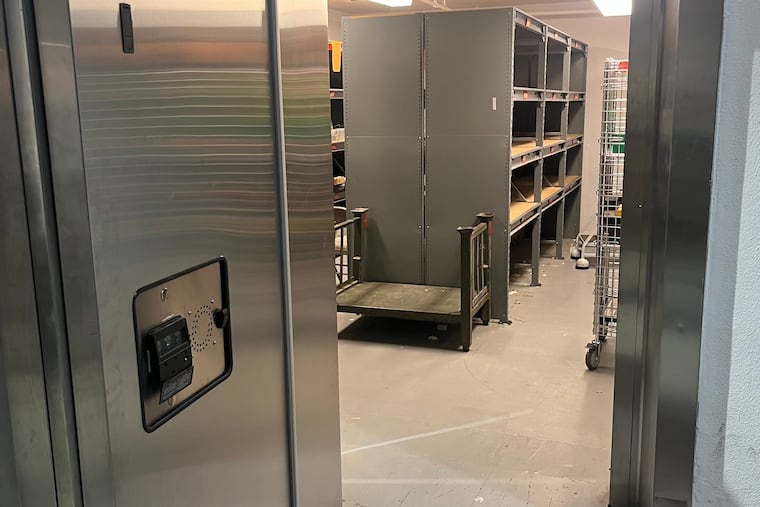Grand jury adds victims and details in disappearance of gold and silver from Delaware depository
If convicted on all charges, Robert Leroy Higgins faces up to 45 years in prison after investors' assets disappeared from the depository he ran in Delaware.

Robert Leroy Higgins’ Delaware gold and silver storage businesses ran out of operating funds in 2012, but, according to a federal grand jury, the West Chester precious-metals dealer was able to attract new clients and stay in business for 10 more years by stealing coins and bullion that 1,000 customers had entrusted to the vaults at his Wilmington warehouse.
Higgins is due in Delaware’s federal court Thursday for arraignment on criminal fraud and tax charges first leveled in 2022 and amended three times, the last filed Feb. 15 after attorneys for Higgins and the U.S. attorney for Delaware failed to settle the case without a trial.
If convicted on all charges, Higgins faces up to 45 years in prison. He remains free on condition that he not leave the area, said his lawyer, Jeremy Gonzalez Ibrahim of Chadds Ford.
Higgins, 68, a longtime coin, bullion, and currency dealer, owned First State Depository, one of several Delaware businesses that hold precious metals for companies and individual investors.
Individual Retirement Account (IRA) rules encourage people who invest in gold and silver to use a commercial precious metals depository like First State, instead of storing the bars or coins at home, if they want to avoid taxes on those assets held for retirement. Delaware is one of the few states that don’t impose a retail sales tax.
Higgins also owned Argent Asset Group LLC, a precious-metals dealership, and operated the Maximus Silver Program, which offered to pay investors a fee for lending their gold and silver to others.
Previous charges alleged that Higgins underreported his income to avoid taxes from 2015 to 2022 and committed fraud by lying to and stealing money from a single unnamed investor.
New details contained in the Feb. 15 filing paint a picture of a more elaborate fraud involving additional victims.
“Beginning in 2012,” Higgins found he was “unable to generate significant profit to finance business operations without the improper use of customer funds,” according to the Feb. 15 indictment.
Rather than shutting down, Higgins called on investors to send gold, silver, and cash to buy precious metals “under false pretenses” that he would store, protect, and file regular valuation reports on them.
Instead, Higgins “misappropriated” their assets, the indictment says. He used customers’ gold and silver, which are hard to trace once they’ve been sold, to pay other investors demanding their money back. He also used it to make a payment on his companies’ $10 million loan to the Israel Discount Bank of New York and “for his own benefit,” including payments on his West Chester-area home, private schools, vacations, and at least two time-share vacation rentals in Hawaii.
Higgins is also accused of sending “false and misleading” storage statements that fooled customers into believing he still had their assets.
The new filing details such frauds against seven unnamed victims. Higgins also falsely claimed investors’ precious metals were insured.
In the end, at least 1,000 of the 2,100 customers were missing gold and silver worth more than $50 million, according to the indictment.
One of the victims, Priscilla Wallace, an Indiana marketing and advertising professional, said court-appointed receiver Kelly Crawford was able to recover a small amount of her silver deposited at Higgins’ Wilmington vaults but was unable to find her more valuable gold.
An audit overseen by Crawford estimated the missing precious metals’ value at $76 million last fall, though valuations change with the rising and falling price of gold and silver in world markets.
Some Delaware depositories are chartered as trust companies and file reports with state banking regulators, but First State wasn’t subject to state regulation, according to Delaware officials.
The company was listed as a precious-metal repository by firms that urge small-business owners, professionals, and IRA investors to buy gold, silver, and other investments.
Victims in the Higgins case have identified New Direction Trust Co. and NuView Trust Co., which operate in multiple states, among the firms that listed First State as depositories for their gold and silver. Officials of both firms said they aren’t responsible for investors’ losses at vendors like First State Depository, and the government hasn’t accused them of wrongdoing.